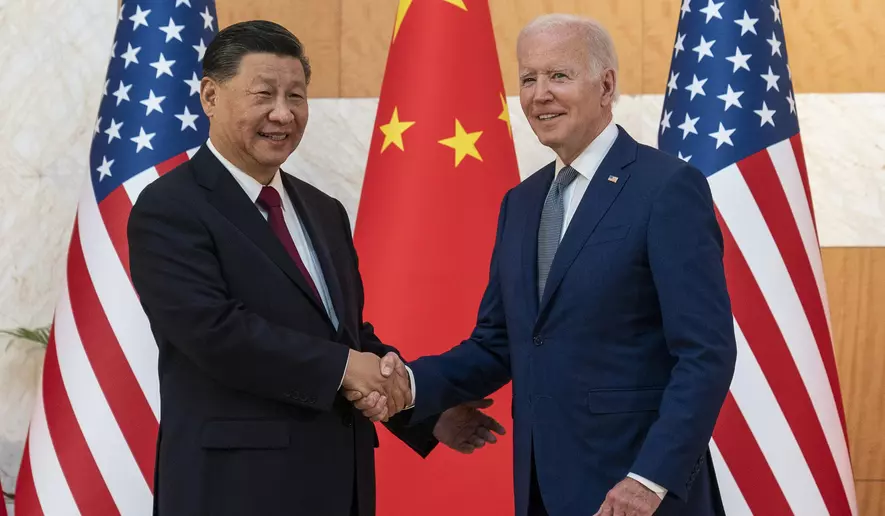US President Joe Biden and Chinese President Xi Jinping engaged in a call on Tuesday, aiming to manage tensions between their nations. The discussion encompassed areas of cooperation, such as joint efforts against climate change and narcotics, but revealed significant differences on Taiwan and economic matters.
Mr. Biden reiterated support for Taiwan, while Mr. Xi warned against US interference in the South China Sea. Disagreements also surfaced regarding US sanctions on China and Chinese-owned enterprises, with Mr. Xi denouncing them as attempts to stifle China’s economic, trade, and technological advancements.
Despite these divides, both the White House and Chinese state media characterized the conversation as “candid and constructive,” spanning topics from AI to military communication. President Biden expressed anticipation for responsible relationship management in the future, acknowledging areas of contention.
Experts noted the performative nature of the call, aimed at showcasing a commitment to managing the relationship despite ongoing challenges. However, underlying divisions persist, particularly concerning Taiwan, as emphasized by Mr. Xi. The call also addressed US concerns over China’s support for Russia’s defense industry and trade policies.
While efforts for damage control were evident, neither leader signaled a shift in the relationship’s tone. The upcoming inauguration of Taiwan’s president-elect, William Lai Ching-te, adds further complexity, prompting China to stress caution from the US.
Several significant diplomatic engagements lie ahead, including US Treasury Secretary Janet Yellen’s upcoming visit to China and a potential trip by US Secretary of State Antony Blinken. These interactions are crucial in shaping the future trajectory of US-China relations.

